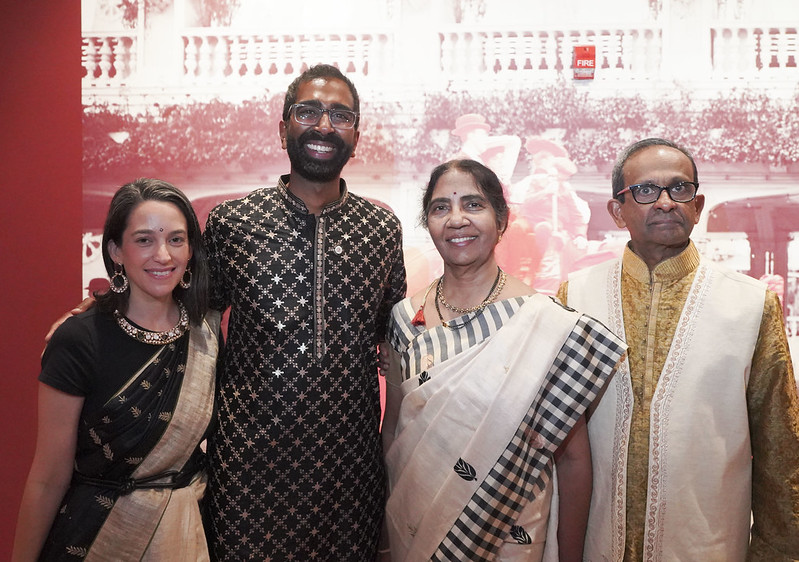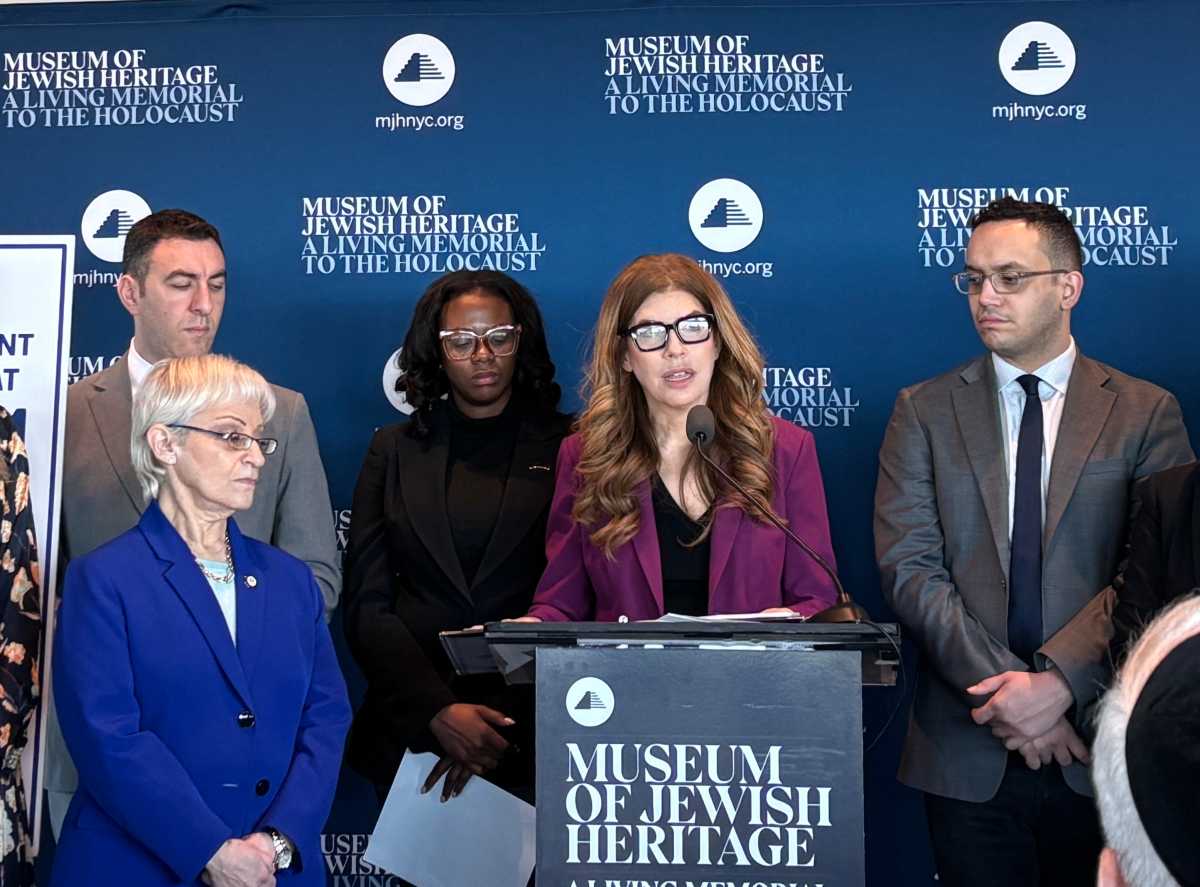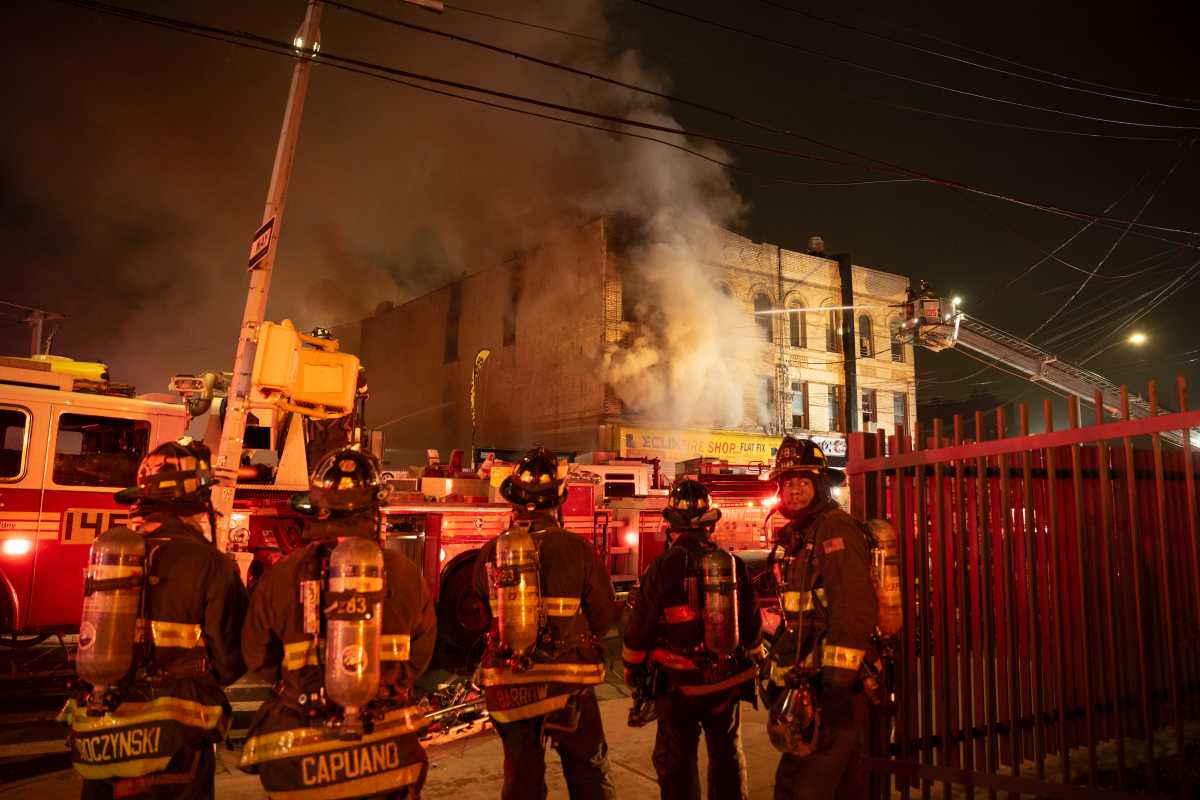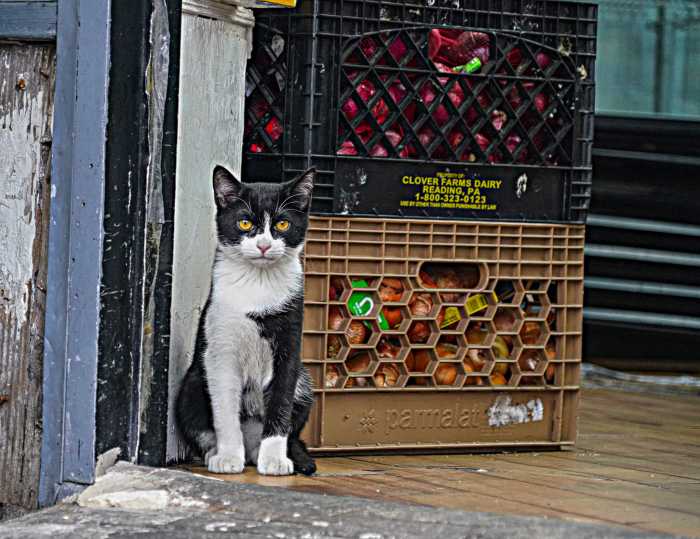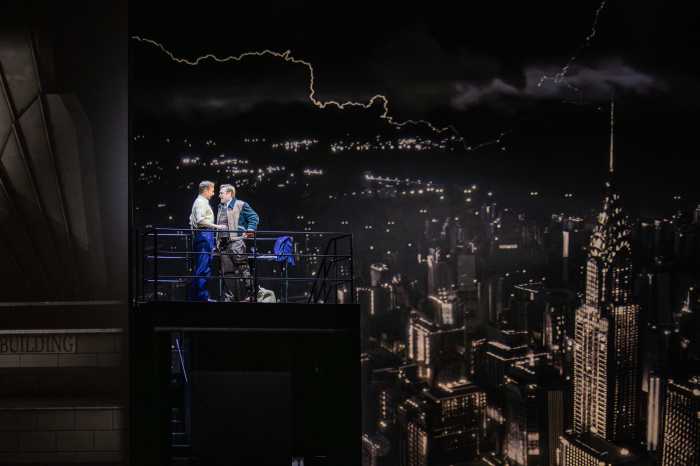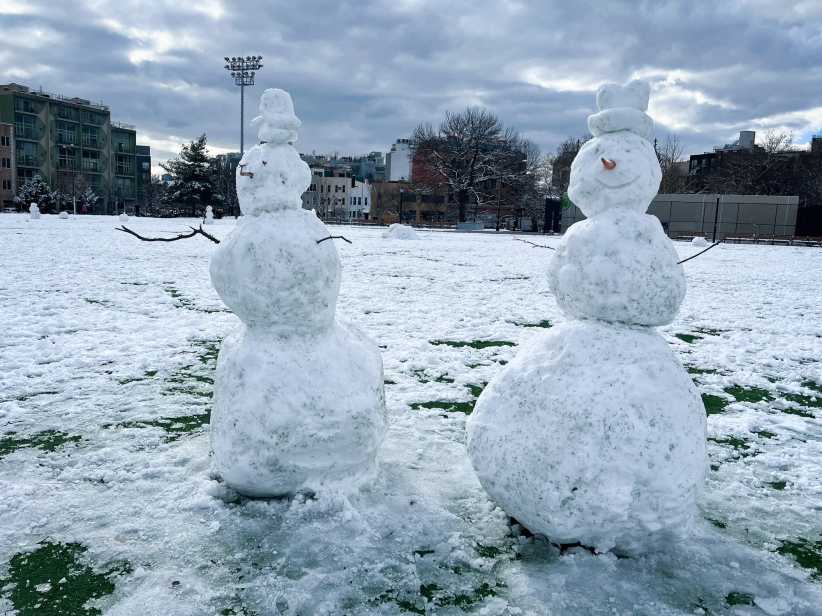Council Member Shekar Krishnan has welcomed the launch of a new exhibition showcasing the influence that South Asians have had on New York City, with a particular focus on the influence of South Asian women.
“The New York Sari”, which launched at the New York Historical at 170 Central Park W on Sept. 12, tells the story of South Asian immigrant experience in the United States through the lens of the sari, a traditional garment worn in Southeast Asia.
Krishnan envisioned the exhibition alongside Jackson Heights-based group Epicenter NYC, which connects New Yorkers with news, stories and “each other.”
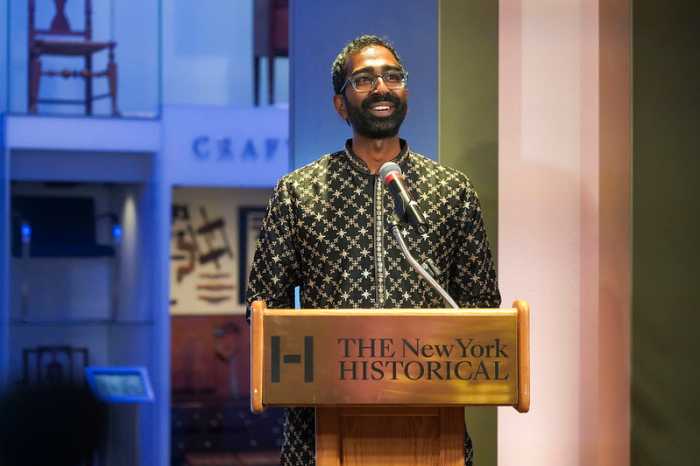
Krishnan joined Epicenter founder and publisher S. Mitra Kalita and members of the local community for a special reception officially opening the new exhibition on Sept. 18.
The exhibition uses the sari as a metaphor to tell the stories of the individuals who wear the traditional South Asian garment and the relationship between saris and identities.
The exhibition is partially inspired by Krishnan’s mother, Dr. Lalitha Krishnan, who wore a sari to an award ceremony during hr career as a pharmaceutical drug developer.
Krishnan believes the sari helped his mother stand out in a room full of suits and ballgowns on a night where she was being honored for leading the creation of a drug used in hospitals nationwide to combat multi-drug resistant infections.
He said his mother “made a statement” by wearing a sari, adding that the garment stands as a testament to the contributions that South Asian women have made to American science and culture.
“I’m honored that our collaboration with the New York Historical on “The New York Sari” has come to life, and I’m thankful to them for amplifying and telling the stories of South Asian women,” Krishnan said in a statement. “This exhibit stitches together the literal fabric of our community’s stories. The South Asian immigrant diaspora is vast and complex, and our experiences are often unseen or untold.”
Krishnan, the first Indian American elected to the New York City Council, said he is thankful to the South Asian leaders who came before him and added that the exhibition is a tribute to those leaders.
“One of those people is my mother, and her work in developing revolutionary pharmaceuticals— and I’m proud that her sari is featured in this exhibit, giving her the credit she’s finally due. I’m thrilled that the public is now able to learn more about the sari, South Asian female leaders, and their significance,” he continued.
Kalita, meanwhile, said saris are a “living testament to the women who wore them,” adding that the garment reflects the dreams they carried across oceans on their journey to the US.
“The journey of my family is stitched into the vibrant tapestry of New York—each style, thread, color a memory of sacrifice, resilience, and belonging,” Kalita said in a statement. “We honor these histories through The New York Sari. I am reminded that fashion is far more than fabric: it is the means by which we pass on our stories, and Epicenter is so happy to share and amplify these to our fellow New Yorkers.”
The New York Sari was curated by Salonee Bhaman, Mellon Foundation Postdoctoral Fellow in Women’s History and Public History, and Anna Danziger Halperin, Director for the Center for Women’s History. Epicenter is the community media partner of the exhibit.
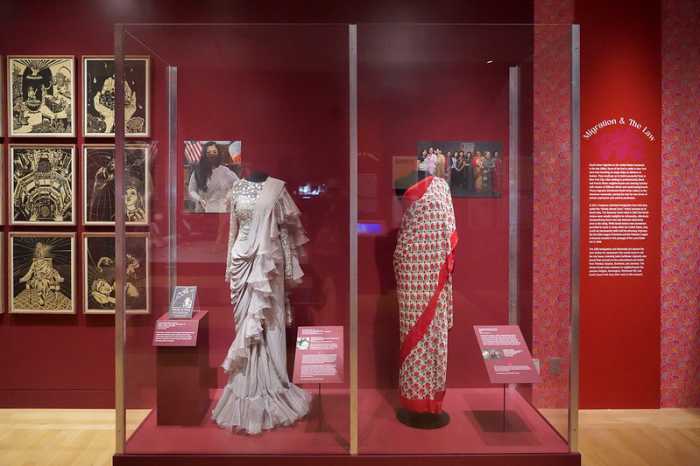
The exhibit features garments from a number of prominent South Asian figures who have made contributions to the fabric of New York City, including Executive Director of South Asian Council for Social Services Sudha Acharya and singer-songwriter, producer and actress Asha Puthli.
Kamaladevi Chattopadhyay, a freedom fighter in the Indian National Movement, and Chaumtoli Huq, a legal scholar of human rights issues related to South Asia, are also honored by the exhibit.
The New York Sari will run at the New York Historical until April 26 next year.

